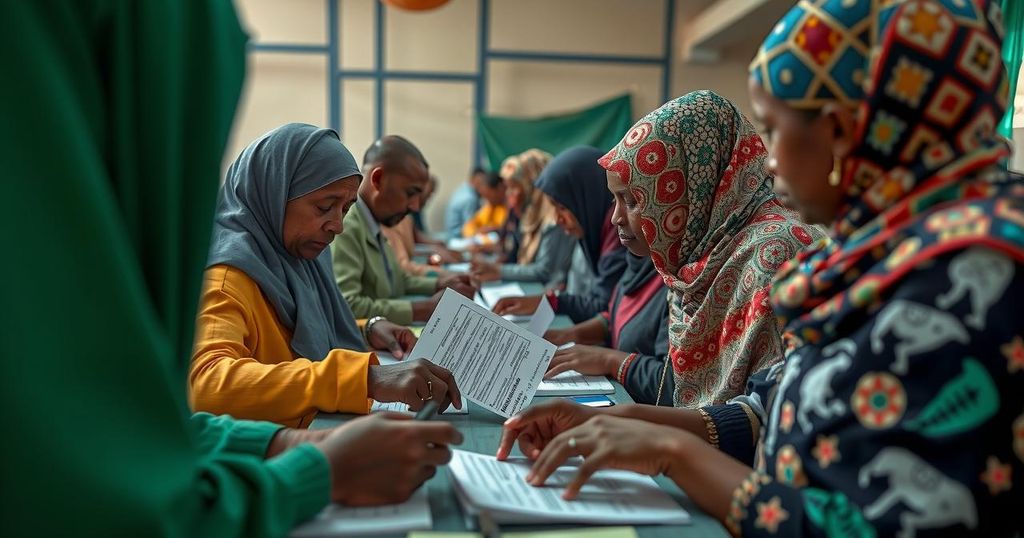Somaliland has completed presidential elections with orderly polling and is now counting votes, aiming to announce results by November 21. The election, which included incumbent President Muse Bihi Abdi and two other candidates, was characterized by peaceful proceedings amid ongoing tensions regarding a controversial deal between Somaliland and Ethiopia affecting its sovereignty. Somaliland seeks international recognition after declaring independence from Somalia in 1991.
Polling stations across Somaliland have officially closed following a successful presidential election, with vote counting now underway as the region aspires for greater international recognition. The Somaliland National Electoral Commission (NEC) reported that polls closed at 6 p.m. local time, with over one million registered voters across 2,000 polling locations. NEC Chairman Muse Hassan Yusuf indicated that minor technical issues were resolved and confirmed that preliminary results will be announced by November 21. General Mohamed Adan Saqadhi, head of the Somaliland Police Force, praised the electoral process for its peacefulness, asserting, “Thanks to Allah, the election took place democratically and peacefully. No incident was reported.” Three candidates vied for the presidency, including the incumbent, Muse Bihi Abdi of the Kulmiye party, who is seeking a second term against Abdirahman Mohamed Abdullahi, known as “Irro,” and Faisal Ali Warabe of the UCID party. Each candidate articulated plans to fortify democratic principles and stimulate economic growth while seeking acknowledgement of Somaliland’s sovereignty that has remained elusive for over three decades. The elections were conducted amid heightened diplomatic tensions with Somalia over a contentious agreement with Ethiopia, which grants Ethiopia access to a portion of Somaliland’s coastline. The Somali government deems this agreement a breach of its territorial integrity and has expressed objections through diplomatic measures. In light of recent developments, the Somali Defense Minister underscored the Somali position against Ethiopian military participation in upcoming peacekeeping missions, reiterating concerns over national sovereignty.
Somaliland, which declared independence from Somalia in 1991, has never obtained formal international recognition. Despite this, it possesses functioning government structures and conducts regular elections, showcasing a commitment to democratic governance. The region’s desire for recognition has been complicated by its relationship with neighboring Somalia, particularly following a controversial agreement with Ethiopia that has exacerbated tensions over territorial integrity and sovereignty. As Somaliland continues to assert its autonomy, it remains engaged in a complex geopolitical landscape marked by historical grievances and aspirations for international legitimacy.
The recent presidential election in Somaliland has highlighted the region’s dedication to democratic processes amidst a backdrop of diplomatic tensions with Somalia. As vote counting proceeds, the electoral integrity has garnered positive remarks from officials, reinforcing the peaceful nature of the elections. Nonetheless, Somaliland’s quest for international recognition persists amid challenges, particularly related to its complicated relationship with Ethiopia and Somalia. The outcome of this election will be closely monitored, both locally and internationally, as Somaliland looks toward a future of potential sovereignty and economic growth.
Original Source: www.voanews.com






